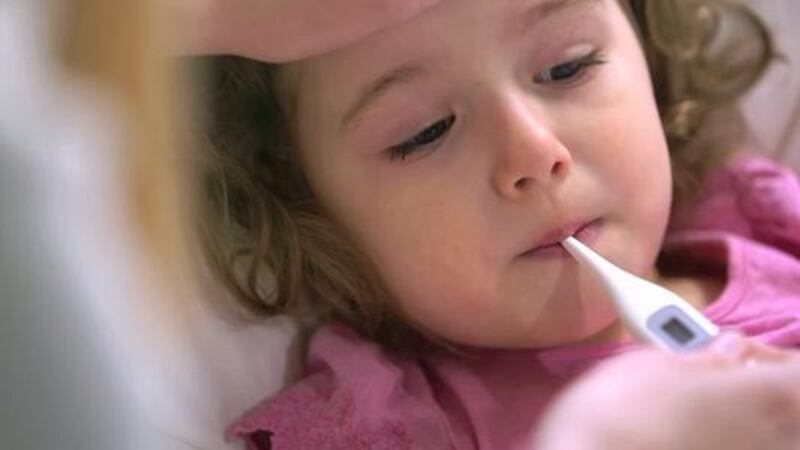Your child is sick. Cough? Check. Sneezing? Check. Runny nose? Check.
But the symptoms that come in addition to those classic signs of illness can help your doctor determine whether your child has the cold, flu or the respiratory virus RSV.
Central Florida pediatricians are advising parents of young children to watch for symptoms that could be warning signs that it’s more than just a cold.
READ: Florida health officials urge residents to get flu shot as soon as possible
Dr. Janelle Barfield said the symptoms of the flu and RSV can often overlap, meaning doctors may test your child for both at the same time to determine between the two.
All it takes to test for the illnesses is a quick swab of the nose. Ten minutes later, the pediatrician said, doctors can have the answer.
But she said there are some symptoms that can help differentiate the illnesses.
"You will definitely find body aches that you might get with influenza that you might not get with RSV," Barfield said.
READ: Warning for parents: Child flu deaths hit record high for this time of year
Just like body aches are a sign of the flu, she said wheezing or any type of respiratory distress can be a sign of RSV.
"So, 2- to 1-year-olds and younger are going to get severely sick with RSV to include wheezing,” Barfield said. “This wheezing is something that you may not see with influenza."
Barfield said it’s that wheezing that can land children in in the hospital. She said sometimes the children can’t breathe and require nebulizer treatments of oxygen.
There is no antiviral or readily available vaccine for RSV, Barfield said.
READ: Doctors warn against kissing babies if you feel sick due to RSV risk
The Centers for Disease Control and Prevention said parents of children at a high risk for risk of developing RSV should, when possible, take the following precautions:
- Avoid close contact with sick people
- Wash their hands often with soap and water
- Avoid touching their face with unwashed hands
- Limit the time they spend in child-care centers or other potentially contagious settings, especially during fall, winter, and spring. This may help prevent infection and spread of the virus during the RSV season.
Each year in the United States, the CDC says more than 57,000 children younger than 5 years old are hospitalized due to RSV infection. Additionally, about 177,000 older adults are hospitalized annually with an RSV infection, and about 14,000 of them die from it.
Unlike RSV, the flu can be treated with an antiviral, such as TamaFlu, Barfield said. And, of course, there’s the flu shot.
She said this year’s flu vaccine seems to be working. Most of the positive flu cases are for those who did not get the flu shot.
Watch the video below for more information from Central Florida doctors about the effectiveness of the flu vaccine this year:
Even if you get the flu after you receive the vaccine, she said it can shorten the amount of time you are sick with it and decrease the severity of your symptoms.
If you haven’t gotten your flu shot yet, Barfield said it’s not too late.
Five more #pediatric #flu deaths were reported to CDC this week, for a season total of 32.
— CDC Flu (@CDCFlu) January 14, 2020
Learn the warning signs of a severe flu infection in children, and seek immediate medical attention if your child shows any of these symptoms: https://t.co/Lu9Akn7mLw pic.twitter.com/njquX5wKC7
© 2020 Cox Media Group










